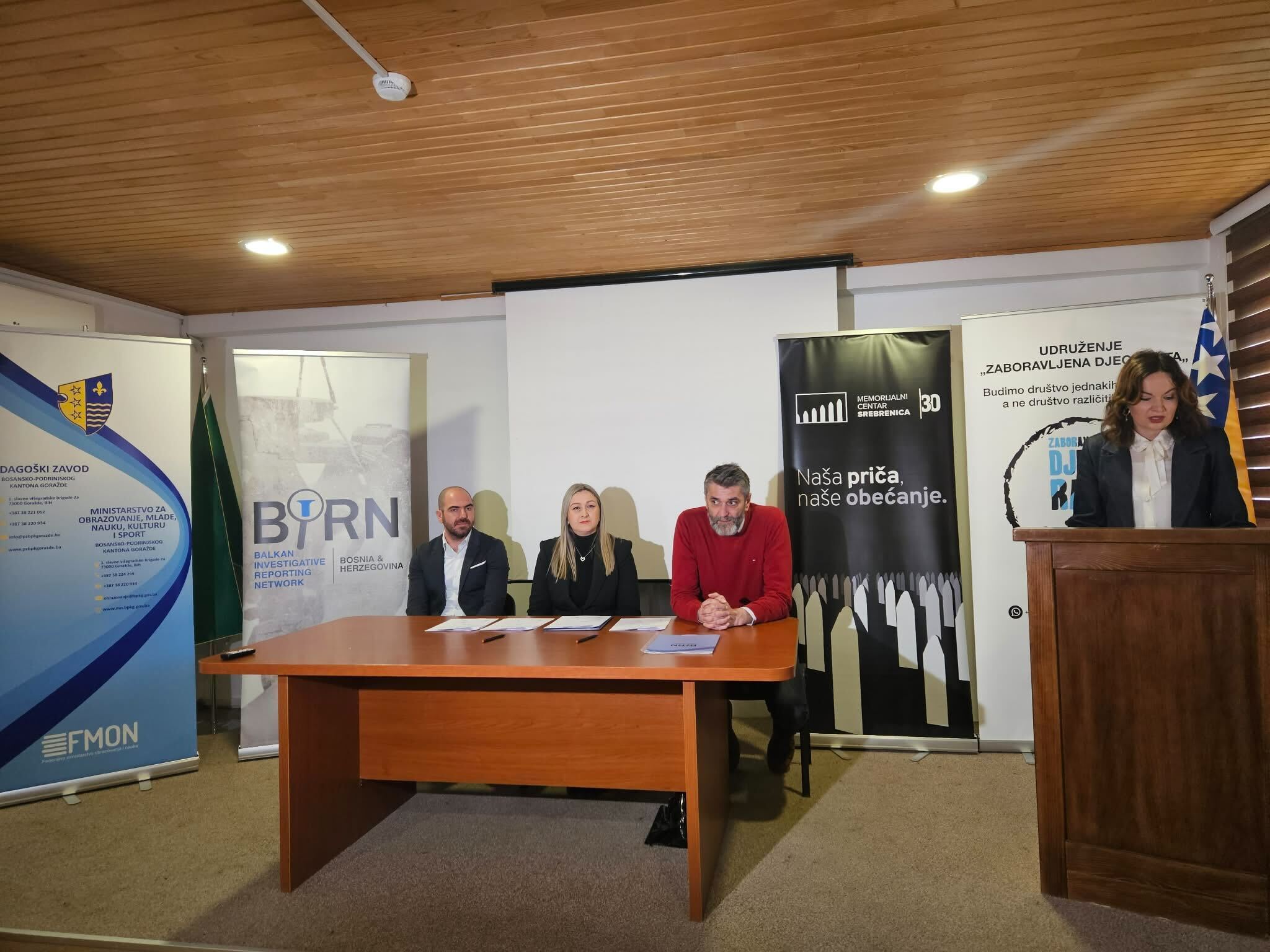This post is also available in: Bosnian
Earlier this year eight nongovernmental organizations have formed a committee to organize the commemoration of 20 years since the start of the Prijedor genocide, as they call it.
However, at the press conference in Sarajevo held on Monday, the representatives of the victims explained that the local government and owners of the land and the buildings where former detention camps for the non-Serbs were situated are refusing to allow the commemorations to take place.
Omarska is the most horrific concentration camp in Europe since WW2, but we were not allowed to enter its premises. We thought about organizing busses and trucks to carry families to places where camps were, to show how it happened in 1992, but everything is being blocked, said Edin Ramulic, a representative of the Izvor association of victims.
On May 9, representatives of Bosniak victims associations were prevented from entering the Omarska camp by Arcelor Mittal, a UK-based company, and the largest steel producer in the world, which has purchased the mine. The company cited safety concerns as the reason for refusal.
Ramulic said that victims associations met recently with Marko Pavic, the mayor of Prijedor, to get permission to host the 20th anniversary but that Pavic refused to support their request objecting, among other things, to the term genocide used in the commemoration plan.
Mirsad Duratovic, the president of the Prijedor 1992 association of former camp detainees, who was held in Omarska as a minor, said that the refusal to allow commemorations is a ban on the right to remember.
I am lost for words, this feels like 1992 all over again, said Duratovic.
Ramulic and Duratovic said that verdicts by the International Criminal Tribunal for the former Yugoslavia, ICTY, and the Court of Bosnia and Herzegovina proved that more than 100 children and 150 women had been killed in Prijedor, and that 31,000 non-Serbs had been held in detention camps in the municipality.
The press conference was attended by Fikret Alic, a former Omarska camp detainee, who gained worldwide fame as the emaciated figure in a photograph of the camp published in Time magazine in 1992.
Alic told BIRN that he had come from Denmark to Sarajevo to appeal to the people of Bosnia and Herzegovina to permit every act of commemoration.
We want to be allowed to commemorate our loved ones. In order to have peace and democracy we have to speak about our loved ones. Every side should be allowed to lay flowers down where they lost family, said Alic, adding that not allowing commemorations meant denying that crimes had even taken place, which made him feel unsafe.
Zijad Bacic, who said he had survived a massacre in the Zecovi village near Prijedor when 29 civilians were killed – including his mother, brother and sister added that no victim should be told to forget their past.
We have to keep living together. We do not have any other country but Bosnia, and we must never forget the truth, he said.
The organizers plan to visit Trnopolje camp on May 31, and are hoping to organize a reconstruction of the expulsion of the non-Serb population from Prijedor in August, with busses and trucks taking people to detention camps and Travnik to illustrate what happened in 1992.
However, they expressed fears that they would not be allowed to carry out their plans.
We do not have any understanding from the government. Many of those in office are people who held positions of power during the war, explained Ramulic.
D.Dz.

